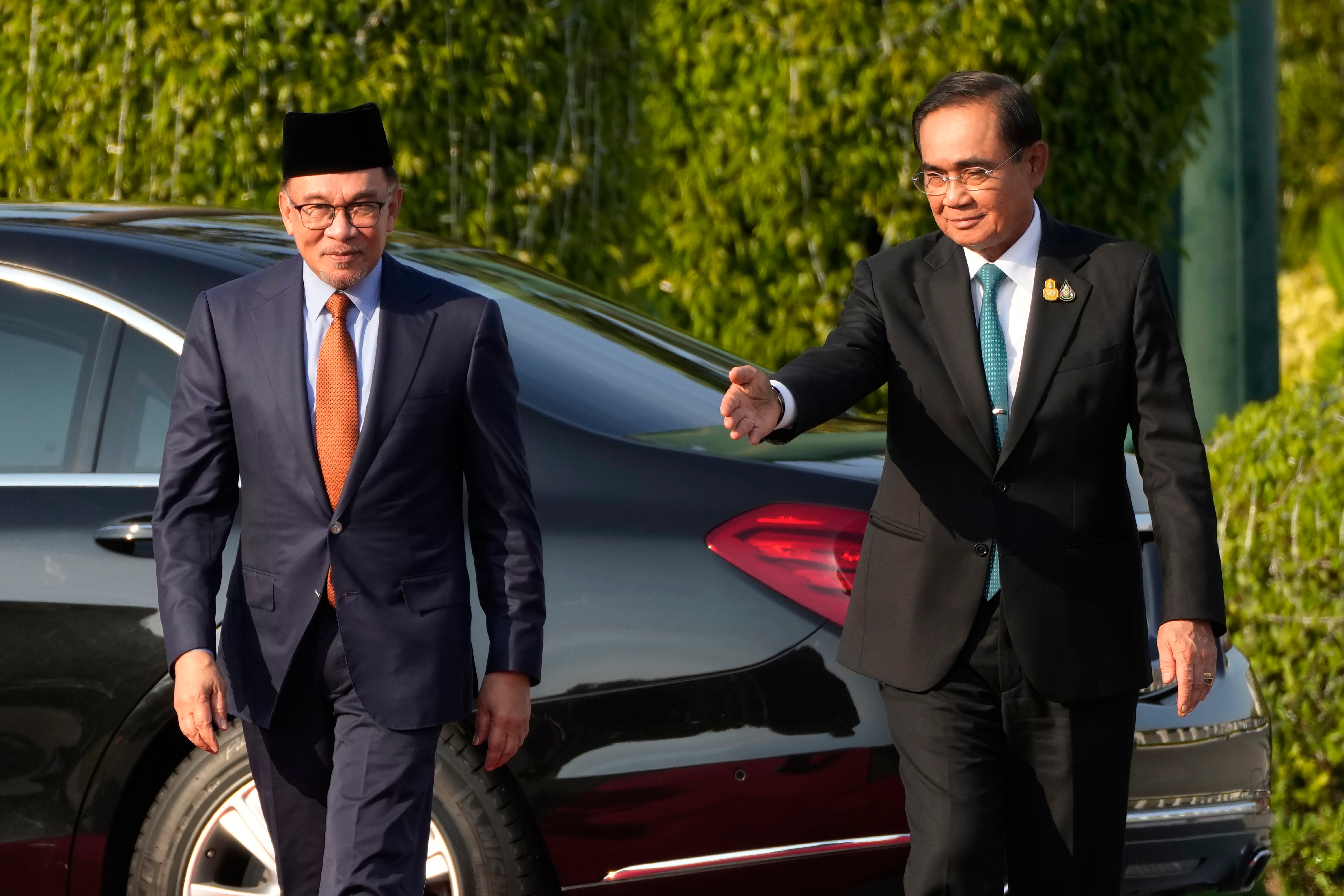Malaysian leader wants tougher ASEAN pressure on Myanmar
Malaysian Prime Minister Anwar Ibrahim has issued a strong call for fellow members of the Association of Southeast Asian Nations to take new measures to pressure the government of military-ruled Myanmar to end what he called “atrocities” against its own people

Your support helps us to tell the story
From reproductive rights to climate change to Big Tech, The Independent is on the ground when the story is developing. Whether it's investigating the financials of Elon Musk's pro-Trump PAC or producing our latest documentary, 'The A Word', which shines a light on the American women fighting for reproductive rights, we know how important it is to parse out the facts from the messaging.
At such a critical moment in US history, we need reporters on the ground. Your donation allows us to keep sending journalists to speak to both sides of the story.
The Independent is trusted by Americans across the entire political spectrum. And unlike many other quality news outlets, we choose not to lock Americans out of our reporting and analysis with paywalls. We believe quality journalism should be available to everyone, paid for by those who can afford it.
Your support makes all the difference.Malaysian Prime Minister Anwar Ibrahim on Friday issued a strong call for fellow members of the Association of Southeast Asian Nations to take new measures to pressure the government of military-ruled Myanmar to end what he called “atrocities” against its own people.
Anwar, on a two-day official visit to Thailand, said in a speech to the Malaysian-Thai Chamber of Commerce that ASEAN members “have to be courageous enough to try and resolve” the crisis in Myanmar, which some U.N. experts have described as a civil war triggered by the army’s seizure of power from the elected government of Aung San Suu Kyi in 2021.
Security forces have killed thousands of civilians and army sweeps through the countryside have displaced more than 1 million people from their homes. In 2017, a brutal counterinsurgency campaign against the Muslin Rohingya minority drove more than 740,000 to flee across the border to Bangladesh, where they remain in refugee camps.
Anwar said Myanmar has “every right" to have its own domestic policies and priorities. “But no country in these times should ever continue with discriminatory policies, marginalization of their people or intimidating, or worse, perpetrating violence against your own people,” he said.
ASEAN “will have to promote, suggest new mechanisms to make sure that these atrocities committed, perpetrated against their own people must end," Anwar said. The regional grouping "should be courageous enough to try and resolve this” because it should not tolerate such abuses and because the crisis drives large numbers of refugees to seek safety in other countries in the region, including Bangladesh, Thailand, Indonesia and Malaysia.
“It would be ideal if we have a strong consensus, and give a strong message to the Myanmar regime,” Anwar said.
After the army’s takeover, ASEAN came up with a five-point plan to try to help restore peace in Myanmar. It calls for the immediate cessation of violence, a dialogue among all parties, mediation by an ASEAN special envoy, provision of humanitarian aid and a visit to Myanmar by the special envoy to meet all sides. The military government initially agreed to it, but has since stymied efforts at its implementation.
ASEAN responded by refusing to let Myanmar's military leaders attend the group’s main meetings, but that has failed to win their cooperation.
Western nations have implemented stronger actions in response to the crisis than has ASEAN, including political and economic sanctions against the generals and their cronies.